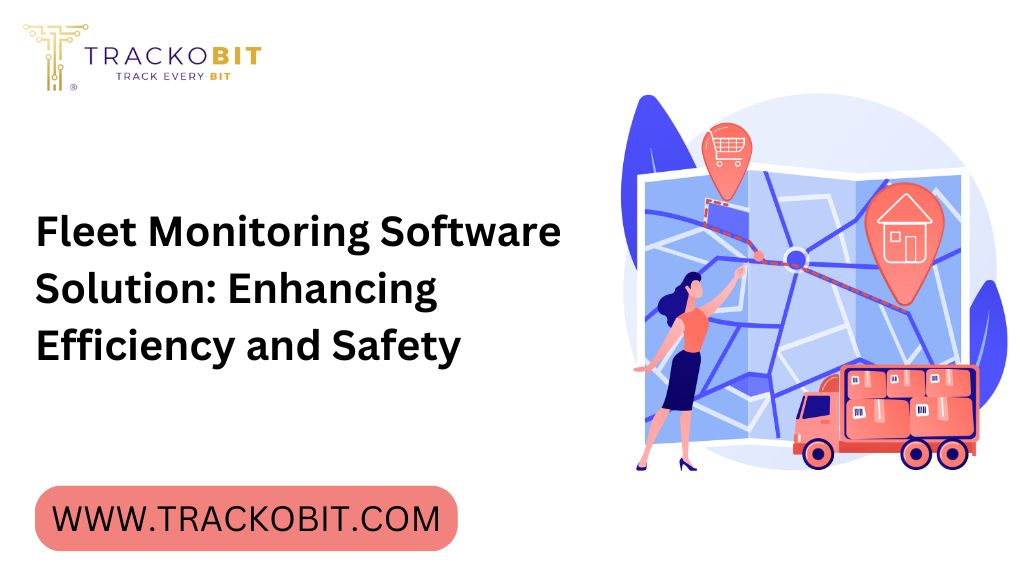Fleet management has become increasingly complex in today’s business landscape, with companies seeking ways to optimize their operations while ensuring the safety of their assets and personnel. Fleet monitoring software solutions have emerged as indispensable tools for businesses looking to streamline their fleet management processes and improve overall efficiency. In this article, we’ll delve into the world of fleet monitoring software, exploring its key features, benefits, implementation, and future trends.
Introduction to Fleet Monitoring Software Solutions
Fleet monitoring software is a specialized technology designed to track and manage various aspects of a company’s fleet of vehicles. From real-time tracking to maintenance scheduling, these solutions offer a comprehensive suite of features aimed at optimizing fleet performance and ensuring compliance with regulatory requirements. Over the years, fleet monitoring software has evolved significantly, incorporating advanced technologies such as GPS tracking and telematics to provide actionable insights into fleet operations.
Key Features of Fleet Monitoring Software
One of the primary advantages of fleet monitoring software is its ability to provide real-time visibility into the location and status of vehicles in the fleet. With features such as GPS tracking and geofencing, fleet managers can accurately monitor the movement of vehicles and ensure they adhere to predefined routes and schedules. Additionally, advanced fleet monitoring solutions offer features such as driver behavior monitoring, which enables businesses to identify and address unsafe driving practices that could lead to accidents or violations.
Benefits of Implementing Fleet Monitoring Software
The implementation of fleet monitoring software can yield a multitude of benefits for businesses of all sizes. By providing real-time insights into fleet operations, these solutions enable companies to improve efficiency, reduce costs, and enhance safety. Moreover, fleet monitoring software helps businesses comply with regulatory requirements related to driver hours, vehicle maintenance, and environmental standards.
How Fleet Monitoring Software Works
At the core of fleet monitoring software is GPS tracking technology, which allows for the real-time monitoring of vehicle location and movement. In addition to GPS data, fleet monitoring solutions collect and analyze a variety of other data points, including vehicle speed, fuel consumption, and engine diagnostics. This data is then processed and presented to users through intuitive dashboards and reports, enabling informed decision-making and proactive fleet management.
Types of Fleet Monitoring Software Solutions
Fleet monitoring software solutions come in various forms, including on-premise and cloud-based options. While on-premise solutions offer greater control and security, cloud-based solutions provide the flexibility and scalability required to meet the needs of modern businesses. Moreover, there are industry-specific fleet monitoring solutions tailored to the unique requirements of sectors such as transportation, logistics, and construction.
Factors to Consider When Choosing Fleet Monitoring Software
When selecting a fleet monitoring software solution, businesses should consider several factors to ensure they choose the right fit for their needs. These include scalability, customization options, user interface, and customer support. Additionally, businesses should evaluate the integration capabilities of the software with other systems, such as ERP and CRM platforms, to ensure seamless data flow and workflow automation.
Challenges and Limitations of Fleet Monitoring Software
Despite its many benefits, fleet monitoring software is not without its challenges and limitations. Concerns related to data privacy, initial setup costs, and resistance from drivers or staff may arise during the implementation process. Moreover, businesses must ensure they have adequate training and support mechanisms in place to maximize the value of the software and address any issues that may arise.
Future Trends in Fleet Monitoring Software
Looking ahead, the future of fleet monitoring software is ripe with innovation and advancement. Emerging technologies such as artificial intelligence and predictive analytics promise to further enhance the capabilities of fleet monitoring solutions, enabling businesses to optimize routes, reduce fuel consumption, and improve overall efficiency. Moreover, the integration of fleet monitoring software with autonomous vehicles holds the potential to revolutionize the transportation industry, ushering in an era of safer and more sustainable fleets.
Conclusion
In conclusion, fleet monitoring software solutions play a crucial role in modern fleet management, offering businesses the tools they need to optimize operations, enhance safety, and achieve regulatory compliance. By leveraging the key features and benefits of fleet monitoring software, companies can streamline their fleet management processes and gain a competitive edge in today’s dynamic business environment.
FAQs
Q.1 What industries can benefit from fleet monitoring software?
Ans: Fleet monitoring software is beneficial for a wide range of industries, including transportation, logistics, construction, utilities, and field services.
Q.2 Is fleet monitoring software suitable for small businesses?
Ans: Yes, fleet monitoring software solutions are available in scalable configurations suitable for businesses of all sizes.
Q.3 How does fleet monitoring software help in reducing fuel costs?
Ans: Fleet monitoring software provides real-time insights into fuel consumption and driver behavior, enabling businesses to identify inefficiencies and implement corrective measures to reduce fuel costs.
Q.4 Are there any legal requirements for implementing fleet monitoring software?
Ans: Depending on the jurisdiction and industry, there may be regulations governing the use of fleet monitoring software, particularly concerning data privacy and driver monitoring. It’s essential for businesses to familiarize themselves with relevant laws and regulations before implementing such solutions.
Q.5 Can fleet monitoring software be customized to specific business needs?
Ans: Yes, many fleet monitoring software providers offer customization options to tailor the software to the unique requirements of each business, including industry-specific features and integrations with other systems.

